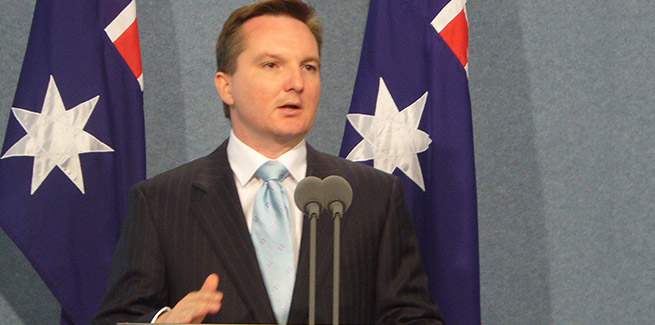Shadow treasurer Chris Bowen has revealed that, if elected to government, the Australian Labor Party’s (ALP) plan to limit negative gearing to new housing and halve the capital gains tax discount to 25 per cent would take effect from 1 January 2020.
Following the announcement, Mr Bowen highlighted the party’s commitment to the reforms, claiming that current arrangements are “skewed towards the wealthy”.
“If you already use negative gearing, nothing changes. It’s not retrospective. And you can still use it for new houses,” Mr Bowen said.
“Federal Labor’s reforms to negative gearing enjoy the support of many independent economists and think tanks like the Grattan Institute and Saul Eslake as well as international economic agencies like the International Monetary Fund.
“The fact is, the benefits of both negative gearing and the capital gains tax discount (CGTD) are skewed towards the wealthy, with the Grattan Institute estimating almost 70 per cent of the benefit of the CGTD accrues to the top 10 per cent of income earners.”
Labor’s policy proposals have come under scrutiny from several property industry stakeholders, which have warned that the changes would exacerbate the slowdown in the credit and housing space.
Reacting to the announcement, the Property Council of Australia reinforced its belief that the proposals, stating that it’s “deeply concerned” with its potential impact on the housing market and the broader economy at an “uncertain time in the cycle”.
Pointing to the findings of its recent survey of investors, the Property Council added that its particularly concerned with the impact that the ALP’s tax changes could have on new housing construction, with its survey finding that the policy would not create the desired stimulus for new housing development.
However, the Property Council welcomed the ALP’s decision to push the commencement date to 1 January 2020, in light of suggestions that it would commence from 1 July 2019.
The group claimed that if the policy was to commence in July, it would have required “retrospective legislation, rushed drafting and no opportunity to take expert advice from Treasury and stakeholders”.
‘Mini surge’ to ensue
The chairman of the Property Investment Professionals of Australia (PIPA), Peter Koulizos, has also responded to Labor’s announcement, telling Mortgage Business’ sister publication, Smart Property Investment, that he expects a medium-term rise in demand from investors.
“[The] good news is, there’ll be a mini surge in the property market in the second half of the year, with investors trying to get in to buy established properties, so they can negatively gear and claim capital gains discount under the old regime,” he said.
However, Mr Koulizos expects demand to take a negative turn if the changes take effect under a Labor government, despite the incentives for large super funds to provide affordable housing.
“[For] the average mum and dad investor, the landscape will change significantly, and as I pointed out previously, it’ll actually be worse for the government so far as the federal budget is concerned, because even though they dish out negative gearing benefits, they collect far more in capital gains tax revenue than they give out in negative gearing benefits.
“[That’s] going to be worsened if it’s only focused on brand new property, because brand new property attracts greater negative gearing benefits. It has greater depreciation, but it has less capital growth, so the government will be collecting less in capital gains tax revenue.”
He continued: “[The ALP] is really shooting themselves in the foot by doing that, and I know they say they’re going to make housing more affordable, but more affordable is just code for dropping property prices.
“I can’t see the sense in the value of Australian property falling all over the country just to assist first home buyers.”
Mr Koulizos reiterated that there are policy alternatives that could assist first home buyers into the market without having broader ramifications on the economy, including the introduction of a government-backed mortgage deposit fund, changes to the First Home Owner Grant, and the creation of a “shared equity scheme”.
The CEO of Master Builders Australia, Denita Wawn, also denounced Labor’s policy proposal, warning that, according to internal modelling, it would “deprive” the economy of up to $11.8 billion by reducing the number of new homes by approximately 42,000.
“Master Builders Forecasts tell us that we need 62,000 new homes built each year to meet the community’s demand for housing,” Ms Wawn said.
“We need all incentives for investment on the table rather than taking away incentives from one part of the market to prop up another.”
She concluded: “This is just robbing Peter to pay Paul.”
[Related: Interest-free loans flagged as alternative to housing tax]
 ;
;
